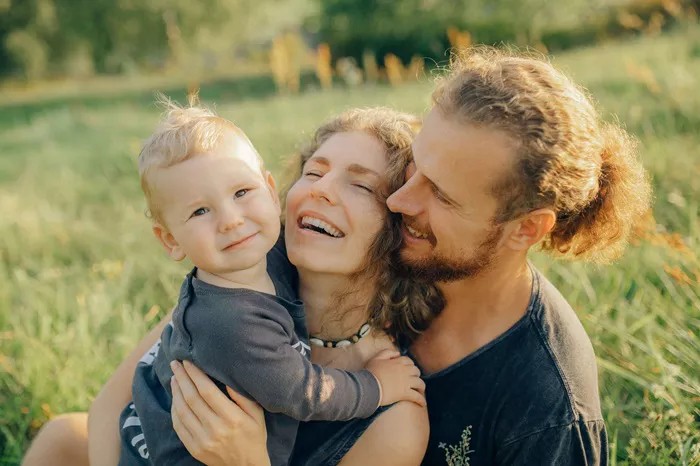Denmark is facing mounting pressure to end the use of controversial “parenting competency” tests, which critics argue discriminate against Greenlandic people. The issue has gained attention following the case of Keira Alexandra Kronvold, a Greenlandic woman whose baby was taken from her just two hours after she gave birth earlier this month.
The tests, known as forældrekompetenceundersøgelse (FKU), are used in Denmark as part of child protection investigations to assess the parenting abilities of new mothers and fathers. However, human rights organizations have long criticized these tests, arguing that they are culturally inappropriate for Greenlandic parents and other minority groups.
The controversy erupted after Kronvold, a woman of Greenlandic descent, gave birth in North Jutland. Her baby’s removal from her care sparked protests in both Copenhagen and Nuuk, the capital of Greenland.
Greenland’s Minister for Children, Aqqaluaq B Egede, met with Denmark’s Minister for Social Affairs and Housing, Sophie Hæstorp Andersen, last week. Following the meeting, Egede reported that Andersen had promised to instruct local municipalities to stop using the tests in cases involving Greenlandic families. However, a subsequent statement from Andersen fell short of a full ban, urging municipalities to “consider” discontinuing the tests for families with Greenlandic backgrounds.
The issue is part of a broader pattern of higher rates of child placements in Denmark among Greenlandic families. According to a 2022 report, 5.6% of children from Greenlandic families in Denmark are placed into care, compared to just 1% of Danish children.
While Danish authorities maintain that the FKU test is not the only factor in child removal decisions, critics argue that it is inappropriate for non-Danish parents, particularly when it has not been adjusted to reflect cultural differences.
“The tests fail to account for language barriers or cultural differences, putting Greenlandic parents at risk of being wrongly assessed,” said Louise Holck, director of the Danish Institute for Human Rights. Her organization has called for an immediate halt to the use of these tests for Greenlandic families, until they can be revised to better account for cultural nuances.
A report by the Institute highlighted that because the tests do not consider cultural differences, Greenlandic parents may be unfairly penalized. It pointed out that such misjudgments could lead to serious consequences, including the wrongful removal of children from their families.
Kronvold, 38, has been through the FKU process twice. She first took the test in 2014 before the birth of her second child and again earlier this year while pregnant with her third child. Speaking through an intermediary, Kronvold described the latest test as an evaluation of whether she was “civilized enough.”
After the first test, Kronvold was permanently separated from her eight-month-old son and nine-year-old daughter. It is unclear whether the test directly led to the removal, but it is believed to have been one of the contributing factors to the decision to remove her newborn hours after birth on November 7.
Kronvold’s situation highlights the challenges faced by parents from non-Danish backgrounds. The psychological assessments of her, conducted by a Danish-speaking psychologist, failed to take into account that Kronvold’s first language is Kalaallisut, a Greenlandic language, and that she is not fluent in Danish.
As a result, Kronvold is now allowed to spend only one hour a week with her baby, under close supervision by a social worker.
Reflecting on her experience, Kronvold said the system “coldly assessed my worth as a parent” and did not recognize the value of her Greenlandic heritage. She described how her culture, where even small facial expressions carry significant meaning, was seen as a barrier to understanding “social expectations” in Danish society.
Kronvold emphasized that the Danish system failed to see the depth of her love and traditions, which were far more meaningful to her than any test score. “I am fighting not just for me and my daughter,” she said, “but for all Greenlandic parents who have lost their children to the Danish system.”
Tina Naamansen, chair of Sila 360, an organization that monitors Inuit legal rights, said Kronvold’s case is just one of many. Laila Bertelsen, founder of the Foreningen MAPI, an association that supports Inuit parents in Denmark, echoed her sentiments, noting that such investigations often lead to forced adoptions and family separation in Greenlandic communities.
“The Danish authorities do not make necessary legal changes or address these serious issues, despite criticism from international bodies such as UN Special Rapporteur José Francisco Calí Tzay,” Bertelsen said.
Aka Hansen, an Inuit filmmaker organizing protests in Nuuk, expressed the frustration of many in the Greenlandic community, saying, “We want our rights to be protected. People are tired of feeling ignored.”
Lars Sloth, head of the child and family administration in Thisted, North Jutland, responded to the criticism by emphasizing that the municipality is focused on the best interests of the child. “We take this case very seriously,” he said. “All decisions are made with the child’s welfare in mind.”
However, he noted that, in the absence of alternative assessment tools, the municipality would continue using the FKU tests, despite the growing concerns.
Related Topics:


